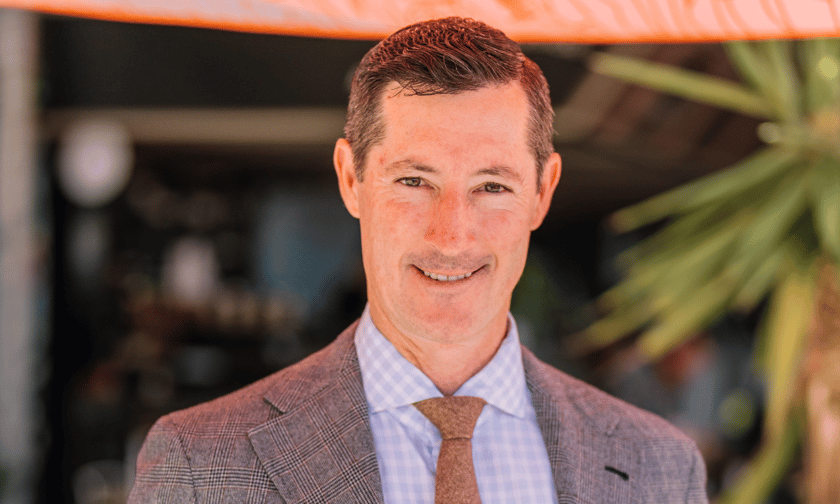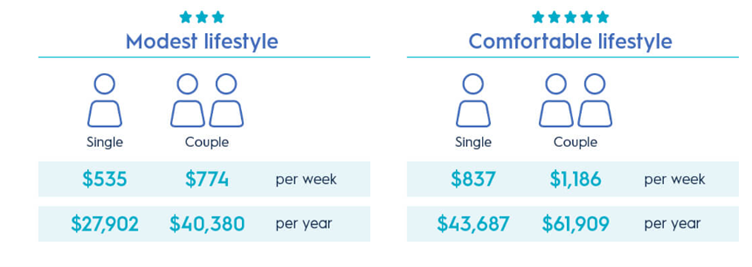

Simon Pressley, founder of Propertyology, has a reputation for shaking things up in the property investment world. Now, he's turning his sights on superannuation, a system he believes fosters financial complacency.
In a recent interview, Pressley (pictured above) didn't hold back, criticising the benefits of the superannuation policies which have been in place since 1992.
“The system which everyone is part of is designed around apathetic attitudes and financial complacency,” Pressley said.
“Regardless of one’s own occupation type or age, the odds of one day exiting the workforce with the necessary financial resources to support one’s preferred lifestyle are poor.”
Currently there are 1.6 million people aged 65 and over receiving income from a super product. This number will more than double over the next decade, with a further 2.5 million people expected to rely on this first retirement pillar.
According to an AMP report, the Association of Superannuation Funds of Australia (ASFA) estimates that Australians aged around 65 who own their own home and are in relatively good health, will need the following amount of money each week and year in retirement:

For single people, that means they need a lump sum super balance of $595,000 while couples need $690,000.
A recent survey found that two in three respondents feared they wouldn’t have enough saved for retirement, with and baby boomers the generation least confident – and there’s a valid reason for concern.
Pressley argued that the evidence showed “the system” produces only a 23% success rate.
According to recent government statistics, the male average account balance in Australia at age 65 to 69 is $453,075. For women, it’s only $403,038.
This means the average Australian needs an extra $125,000 in their super fund to be comfortable.
Keep in mind, that’s just the average – which can be heavily skewed towards the small number of retirees with large super balances.
And with the cost-of-living only going up, it’s little wonder that the 15% of Australian who are currently aged over 65 are still in the workforce, primarily because they can’t afford to retire.
Of course, there’s the second pillar: the age pension, which 62% of Australia's retiree aged population rely on.
These “back-ended unemployment benefits”, as Pressley calls it, only equate to $25,000 for singles and $37,000 for couples – hardly enough for a comfortable retirement.
While valid arguments can be made for increasing it, it already costs $55 billion per year of taxpayer money.
Pressley argues that a lack of financial literacy is a major culprit.
“Consciously or subconsciously, those who fall victim to ‘the system’ are accepting of a lowest common denominator outcome,” said Pressley. “Reading that statement might make people feel uneasy, but it’s the truth.
“Superannuation only exists because financial literacy is not taught anywhere in society. And very few people have sufficient discipline.”
Currently, the “small few” who actually set goals, exercise financial discipline and invest in their future are subjected to “tall-poppy criticism” by those who have mastered the game of blame, excuses and rights, Pressley said.
“Governments are forever producing Robin Hood policies which take from those who’ve produced more only to give it to others. It is impossible to multiply wealth by dividing it,” Pressley said.
“Any society which does not encourage people to invest in their future is a grossly underperforming society.”
At a macro level, Pressley said that teaching basic financial literacy – including the importance of everyone aspiring to become financially independent – needs to become part of normal life.
Pressley also said he considers superannuation as little more than a “fall-back position”.
“I choose not to add a dollar more into the superannuation prison than the law requires, but I’m very driven to do as well as can for my family’s future with investments outside of the superannuation environment,” he said.
“The only certainties which one can have with superannuation is that it will never be enough, the age that one can access it will keep getting stretched, the rules will keep changing, and it affords absolutely no control at all over one’s future.”
Superannuation still has a role to play, but Pressley said it will never be the entire solution.
“The current statistics prove that it has a two out of 10 success-rate,” he said.
Instead, he favours changes to superannuation which include:
“A first-time property buyer, including a rentvester, should be authorised to withdraw a maximum of $30,000 to put towards a deposit on the purchase of residential real estate,” Pressley said.
“Conditions of withdrawal should include [that] the person must (at least) match the superannuation withdrawal with the same amount of their own genuine savings accumulated over a period of no less than two years.”
“Those who have already demonstrated financial responsibility ought to have the option of accessing their superannuation from age 50, whether they have completely stopped work or not,” Pressley said.
“Eligibility criteria would need an ‘asset test’ of sorts and those who do access superannuation between the age of 50 and 65 forfeit any future access to an aged pension.”
